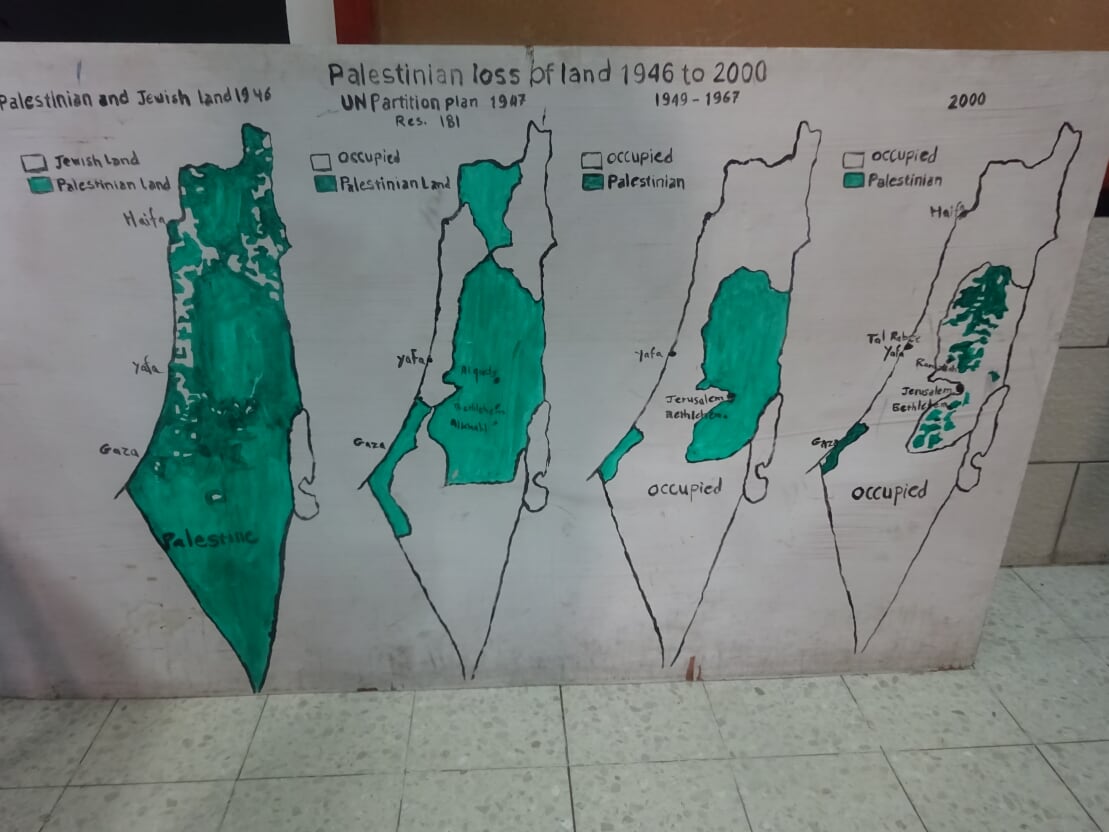The next few days I plan to blog concerning some of the themes we pushed while in Brazil. Perspectives, but of course ever so close to the truth!! The context for what we shared was a land that has seen so much church growth, yet still has very high levels of corruption and occult, and the time we were there was a very divisive time of the presidential election. It also followed on the back of suggesting a few posts ago that misogyny is one of the strongholds that needs to be repented of and broken. The concept of ‘digging’ down to foundations has been with us for a while and that will also contribute to the content of these posts.
Interpreting the Bible… so many principles in hermeneutics, a main one being to discover the author’s intended meaning. That seems pretty clear, but… what if God intended a ‘hidden’ meaning that only I could discern (not totally serious about that suggestion, but maybe the point is there could be more to the text than the author initially meant). Then there is an element of reader interpretation. Reading the Bible in a second language is always interesting, phrases sound different and provoke new ideas. This experience makes me more open to fresh readings from the text.
These posts will mix background thinking, understanding of Scripture with some of the practical outworking. Not always an easy read but hopefully rewarding.
Getting ready for Brazil
Gayle came to Brazil with a desire to see space be made for the feminine voice, not simply to gain agreement with a theological tick of ‘the Bible agrees’, but that the deep masculine (and at times misogynist) structures be challenged. There can be agreement at a theoretical level and yet no space be made for the voice of the feminine. Discussions and dialogue can be done in such a way that the feminine (and this is not simply restricted to the ‘female’) voice is not heard.
In Spain there are some great examples of the feminisation of politics. Ada Colau and Manuela Carmena being the mayoresses of Barcelona and Madrid respectively have taken approaches that are not confrontational but dialogual based on respect and listening to one another. In Brazil, however, the feminist movements have mainly positioned themselves aggressively in opposition to the status quo and to men. It was difficult to get a perspective into the various settings, but the meal table was the place where room was made and ground taken, and from there we were able to sow into the more public settings.
This aspect of the voice of, and space for, the feminine, did not simply sit there by itself but as the push was to dig into the deeper layers what began to unfold was a group of ideas that seemed to interlink. A little out there, but in the lead up to the trip Gayle had an encounter with the angel of Cádiz called Gadir, and she came with us to Brazil. There is a long background to this but our first encounter with her was in connection to the release of the young woman of Cádiz / Spain. In recent days Cádiz has been undergoing some ongoing excavations and being one of the oldest continually inhabited cities with an ancient history, we realised that her partnership was the release of the feminine and this would be accomplished by some serious digging.
The journey of the Incarnate Jesus was from on high to the lowest place and back again. He did this so that he could fill all things on behalf of his body, the church. The church then is the fullness of him who fills all things in every way (Ephesians). Many of us have been comfortable with the concept of warfare in the heavenlies, and although practice might differ we look to see limitations placed on those hostile heavenly powers. If I suggest that is to focus ‘up’ what about the focus ‘down’? Although not literally up and down, we began to see that there has to be work done to dig down to the deep structural layers that have been the foundations for society. If the Gospel is indeed about social transformation (‘there is a new world’) then those foundations have to be changed spiritually.
Foundational to creation was the creation of humanity with male and female in God’s image. When the inter-relationship of this ‘other’ is skewed then it results in a fault in the very foundations. By extension the male / female ‘other’ relationship has to be pushed to the inter-relationship to all ‘others’, the ultimate healing being the love for the enemy. Love has to be discovered and what resists love resisted.
Sin – not defined by law
Our theological inheritance is mainly from the Reformation period with an emphasis on sin as law-breaking. Usually we have understood the Torah as presenting God’s standards and Jesus the perfect One taking on the punishment for the guilt of the world. Let me suggest a different approach.
In Romans Paul seems to put forward the concept that the heart of sin is to shut God out with the result being all kinds of wrong behaviour. Wrong values (wrong worth-ship / worship) was at the heart of the Fall. The generosity of God – eat of all the trees except for ONE – was rejected with the insistence that we will take fruit from the forbidden tree. This is law-breaking, but at the heart of it is the over-reaching beyond boundaries in order to insist on our right to take. ‘I saw, I desired, I took and I ate’ is the testimony of the world’s fallen state. In the Torah there are many commands not to move boundary markers, not to take what disadvantages others, not to harvest to the maximum, to be content, to make room for those who have no space… and inbuilt was a program that when things did expand in wrong directions to put it all back with the 7 year release and the 50 year Jubilee.
Sin expresses itself in taking space that shuts out the space for the other. This was the result in the male / female relationship with the man ‘ruling’ over the woman. Commissioned to rule together the result of sin was the rulership of the male over the female. The shared commission became unequal, and even worse the focus which was to be a rule (care for) the space became rulership over someone else. The battle for space is the story of conflict, told from the underside and it is the story of slavery; told from the victor’s side and it is the military and trade victory.
Paul does not simply make the point that ‘all have sinned and so all are guilty’ but that both the Jew with the law and the Gentile without the law have sinned:
There is no difference between Jew and Gentile, for all have sinned and fall short of the glory of God (Rom. 3:22,23).
It is not changing the meaning if we were to change the ‘all’ to ‘both’. Jew and Gentile alike have sinned and that sin is defined as falling short of the glory of God. The primary issue is not law-breaking, but not living up to the creational call of God. That call was to be truly the image of God. Only Jesus came in that way. Only Jesus truly fulfilled that calling and John informs us that we beheld his glory, full of grace and truth (Jn. 1:14). Truth has to come in a grace package otherwise there will be no glory.
The Tri-une God is revealed whenever one human being sees another human being and in that mutuality give space for the other to fulfil their destiny – with no strings attached but through self-giving love. This is the call in marriage but that call is not restricted to marriage, and Jesus, as single, fulfilled this call in totality giving himself in outpoured love not for one ‘other’ but for all ‘others’.
Only in this self-giving way is glory revealed. To fail to do so is to fall short of the glory of God, and Paul says there is no distinction, Jew and Gentile alike have fallen short. A very key Scripture concerning the transformation that Jesus brings to us and our world is in 2 Corinthians 5: 16,17:
So from now on we regard no one from a worldly point of view. Though we once regarded Christ in this way, we do so no longer. Therefore, if anyone is in Christ, the new creation has come: The old has gone, the new is here!
To be in Christ is to have a change of sight. We cannot see people how they are often classified: by their background, education, wealth, gender, sexual orientation; but according to their destiny. People are seen differently because – for those in Christ – there is a new world. There is a new world to come for sure, but the sight is such that a new world is already seen – along the lines of MLK’s words ‘I have a dream’.
There is a cry from creation which is a cry for liberation (Rom. 8). That cry is not always articulated well and is often expressed in frustration or anger. The cry is from the street and if what is heard can be heard beyond the painful groan then wisdom itself can be heard to be crying out. In Romans 8 there is the cry of the person that finds freedom in God’s Spirit coming to them and they cry out ‘Abba Father’. In the same way as our cry was directed to God the cry of society is directed to those who see a new world, those who are in Christ. (In using the term ‘in Christ’ I am not saying the cry of society cannot be responded to by those who are ‘not’ in Christ, but emphasising that we who belong to Christ carry a primary responsibility.)
The cry, even of aggressive feminism as in Brazil, or the cry of the marginalised peoples (LGBTQ, #MeToo, Black Lives Matter and a whole host of others) is at its core creation’s cry for liberation, even at times if muffled or distorted. We cannot silence that cry for if we see differently we will hear the voice of the Spirit in the noise and clamour. The cry is from ‘under’.
Sight and sound
In the last paragraph I suggested we have to see differently to hear differently. This is something that Revelation presents with the sight either clarifying or correcting what is heard. John hears that the Lion has triumphed, but when he turns he sees a Lamb. The power language can be and is distorted to justify dominance. The sight is vital if we are to hear the sound accurately. We will never hear the cry of creation if we cannot see the ‘other’. There is a sound rising – can we see those who are groaning, shouting, screaming, even using words of hate?
More to come…







